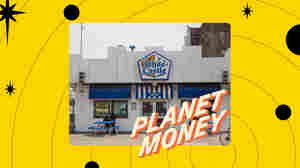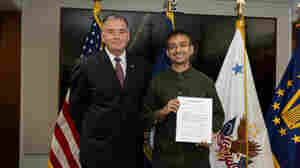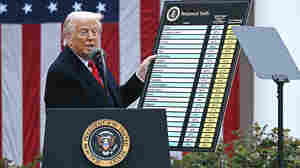Wanna go deeper? Subscribe to Planet Money+ and get sponsor-free episodes of Planet Money, The Indicator, and Planet Money Summer School. Plus access to bonus content. It's a new way to support the show you love. Learn more at plus.npr.org/planetmoney


Planet Money
From NPR
Wanna see a trick? Give us any topic and we can tie it back to the economy. At Planet Money, we explore the forces that shape our lives and bring you along for the ride. Don't just understand the economy – understand the world.
Wanna go deeper? Subscribe to Planet Money+ and get sponsor-free episodes of Planet Money, The Indicator, and Planet Money Summer School. Plus access to bonus content. It's a new way to support the show you love. Learn more at plus.npr.org/planetmoney
Most Recent Episodes
How useful, really, are the steps you can take after a data breach?
How useful, really, are the steps you can take after a data breach?
The debt limit, the origins of the X Date, and why it all matters
The debt limit, the origins of the X Date, and why it all matters
Sahil Lavingia (right) was a DOGE staffer at the Department of Veterans Affairs for 55 days. He was sworn in on March 17, 2025 by the VA's Assistant Secretary for Human Resources and Administration / Operations, Security, and Preparedness, Mark Engelbaum. Sahil Lavingia hide caption









